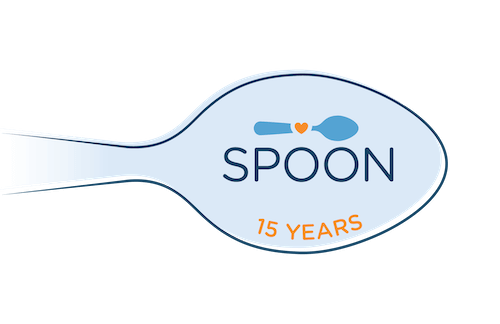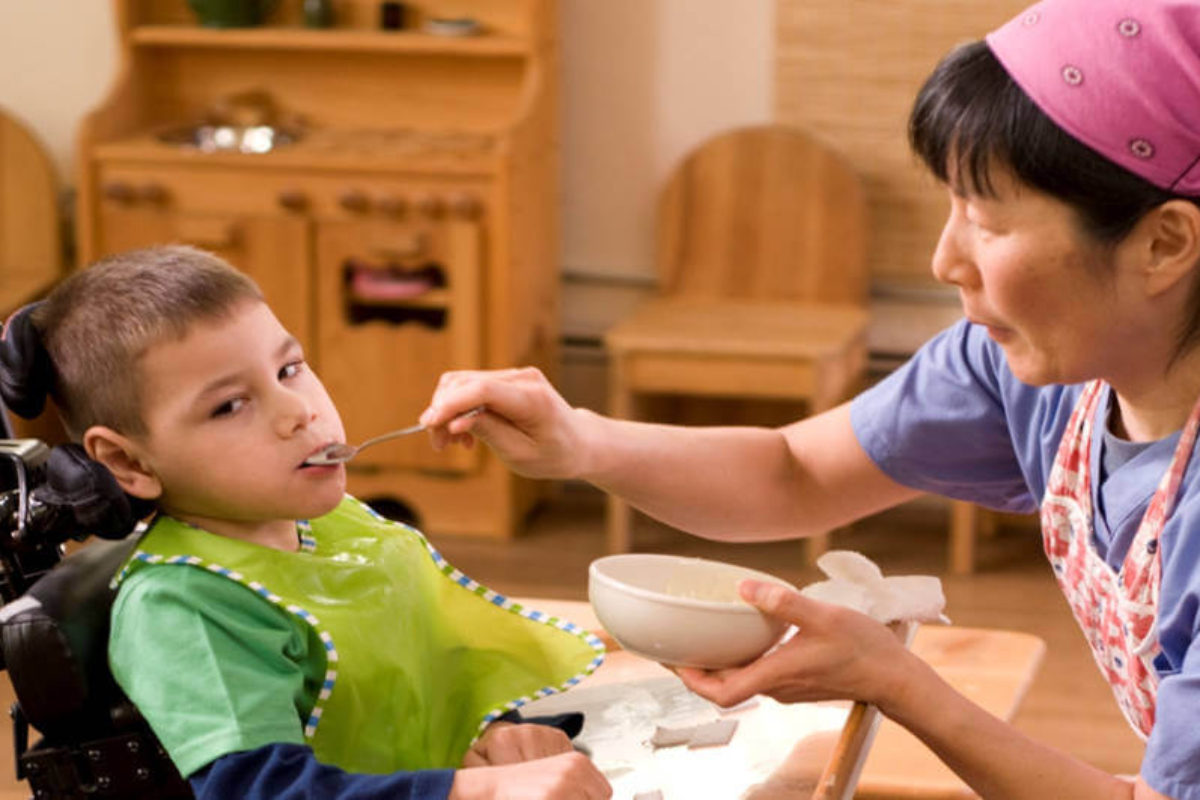A Safe and Affordable Solution for Children with Feeding Difficulties
All children need to be able to sit and eat comfortably and safely in order to be nourished. Unfortunately, affordable and effective seating solutions are scarce.
For children with disabilities in low resource settings, this lack of safe seating can have devastating effects on growth and development. With the help of an incredible team of volunteer supporters and staff, a solution we have been committed to creating for vulnerable children is now taking physical form.
Early nutrition is crucial for children to develop and thrive and undernutrition in childhood can have harmful lifelong consequences (UNICEF Nutrition Strategy). Children with disabilities are three times as likely to be malnourished and twice as likely to die from malnutrition as their typically developing peers. Globally, around 291.2 million children have a disability (Global Burden of Childhood Epilepsy) and an estimated 80% of children with disabilities have feeding difficulties (Delayed Development of Feeding Skills in Children with Feeding Difficulties). Stable positioning during feeding can help to manage these difficulties by improving breathing ability, supporting safe swallowing, and preventing children from choking. Currently, practical and affordable seating solutions are rare.
To solve this problem, SPOON partnered with Utensile, an Oregon-based product development company, to create a safe, long-lasting, and affordable feeding chair that provides adequate support for children with feeding difficulties.
“Many children with disabilities can’t sit up on their own while they’re eating. When they’re fed in unsupported positions, they often have difficulty chewing and swallowing which can lead to respiratory illnesses. SPOON’s seating solution is designed so children can sit up safely and eat in a way that keeps them healthy.”
Mishelle Rudzinski
Co-Founder & Executive Director

Filling a Gap
Current seating solutions on the market are largely impractical for children in low-resource settings. For example, cardboard seating has to be replaced often because it doesn’t hold up to the elements, and wood seating is unfavorable because wood is needed in many countries for other purposes like building shelter. Commercial seating can be expensive and is typically hard to transport or fold for convenient storage.
In response, the SPOON Chair was developed as a low-cost solution that we intend to produce for under $20.00 USD. Unlike others, this chair is designed to fold for easy storage and assembly. It’s also designed with few parts so it’s less likely to break or need maintenance. The SPOON Chair will be easily adjustable so that it can adapt as a child grows, and so that the chair can be used in settings where multiple children need feeding support. The chair will be designed to be compatible with different cultural feeding practices, for example where children typically eat at tables or on the floor.
Building With Knowledge
Before creating a prototype of the chair, SPOON conducted a survey with some technical partners, including physical and occupational therapists, in order to get feedback on the concept of the product. These partners saw the chair’s potential – the opportunity to fill not just the need for a safe and secure feeding chair, but also for a versatile chair that can be used to support children on camping trips or at the beach.
After receiving positive feedback and interest in the project, we approached SPOON supporter Jason Hilbourne, Founder of Utensile, and asked for his assistance in bringing the chair to life.
SPOON and Utensile worked closely together to ensure that the engineers incorporated SPOON’s knowledge about children with disabilities into designing the prototype. According to Jason, while “engineers know a whole lot about making just about anything, they know very little about feeding these kids! So collaborating with SPOON regarding chair heights, angles, support, etc. was essential.” The unique perspective of each of Utensile’s engineers along with the clinical and field experience of the SPOON staff combined to develop a chair that was now ready for expert review. SPOON could not have asked for a better partner in Utensile. They balanced SPOON’s clinical and field perspective with design and manufacturing capabilities to produce the first prototype.
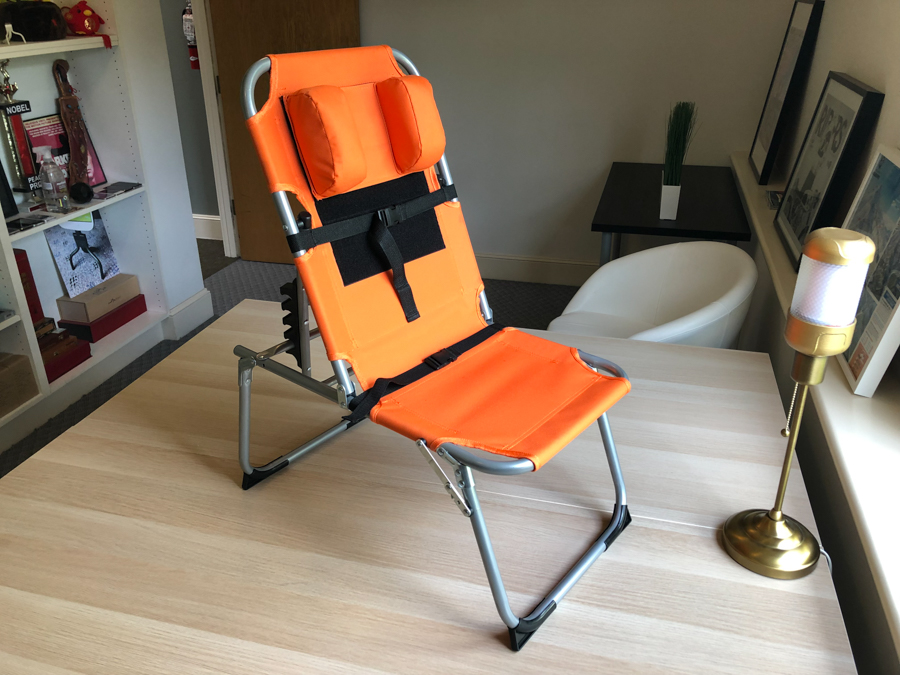
SPOON Chair Prototype I
A Second Prototype Ready For Testing
Once the prototype was developed, SPOON started testing the chair locally in Portland. Feeding & Disability Specialist, Kate Miller and Program Officer, Stephanie Auxier led the project for SPOON and coordinated the prototype evaluations. The first round of testing was focused on safety, for example making sure the chair is stable, and that it functions properly. Led by volunteer and retired pediatric physical therapist, Jocelyn Goodall, the team began testing the chair with typically developing children. Subjects found that the chair is a convenient size and that it’s easy to fold for storage and transportation. They also found that the chair’s safety belt is comfortable and unrestrictive while still providing adequate support and stability for the child. SPOON will continue to get feedback from local partners and parents so that any adjustments can be made before it’s tested with the target population, children with disabilities.
Given the safety concerns surrounding COVID-19, SPOON won’t conduct further testing until it’s safe to do so. But plans are already taking shape. In the future, SPOON will test the chair in a variety of international settings. Feeding can be a long and stressful process for children and their caregivers, but proper positioning can make it significantly easier. Stable positioning can drastically reduce mealtime length, allowing children to be fed more frequently and supporting their nutritional needs. More efficient mealtimes also improve the child/caregiver relationship by reducing caregivers’ stress about feeding. Stable positioning supports children’s development by allowing them to learn new skills, giving them more freedom during mealtime, and setting them up to develop more independence later in life. Each round of testing and product development brings SPOON and Utensile closer to a final product – the most affordable, adaptable chair possible that serves the greatest number of children.
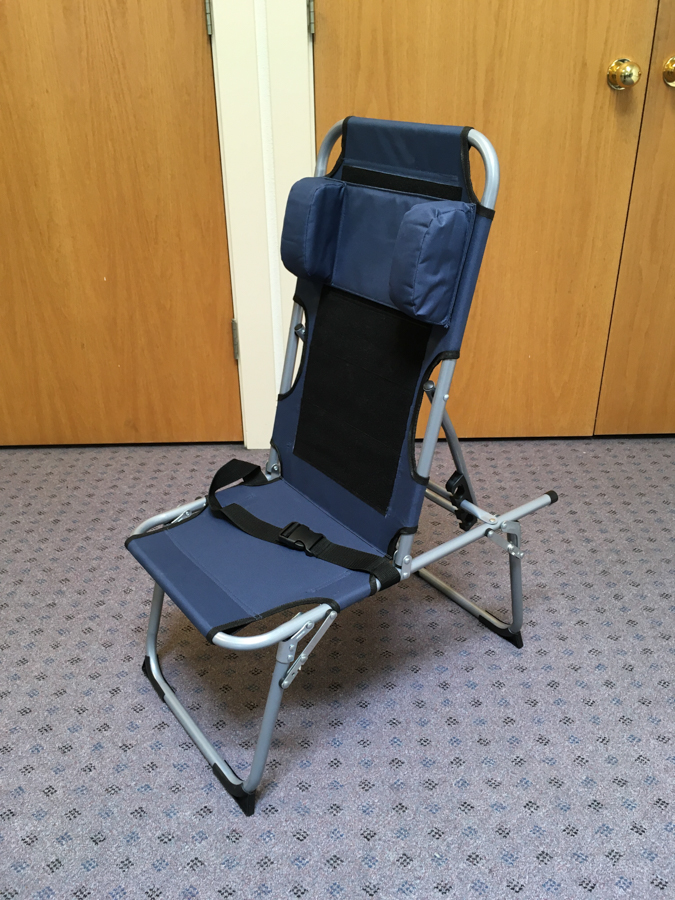
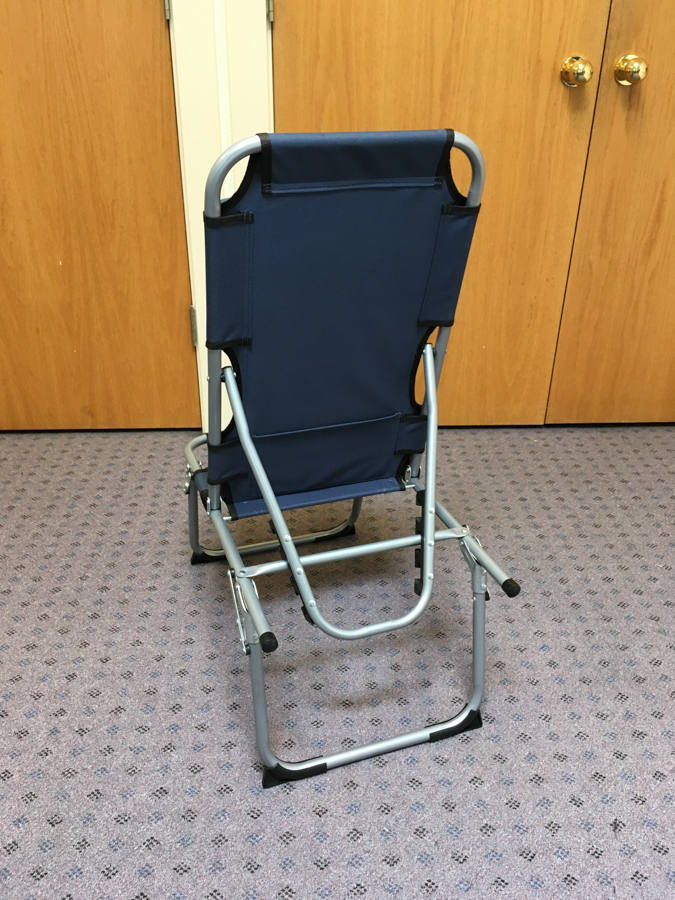
Prototype II adapted from first round testing and evaluation
In September, SPOON received the second prototype which incorporated a number of design and function changes, still with an eye towards affordability. Our incredible partners are continuing to champion and elevate our work through the COVID-19 pandemic. Phase II testing is ready to begin! More to come…
Amanda Spott, research intern, led the writing of this post.
